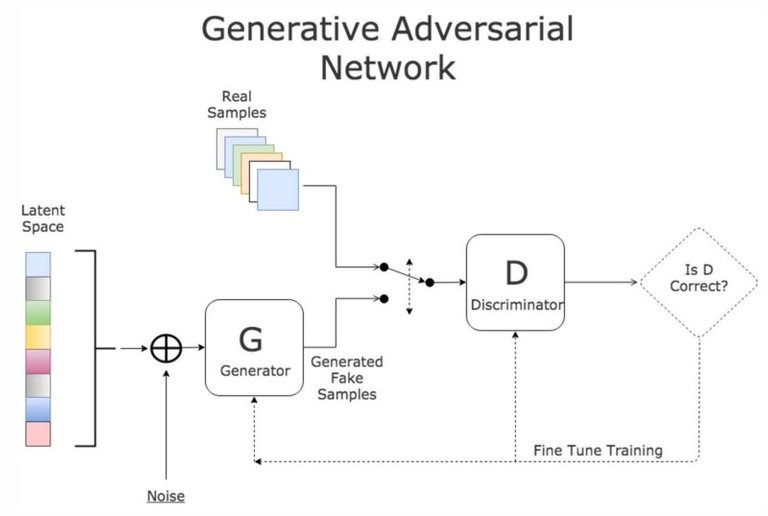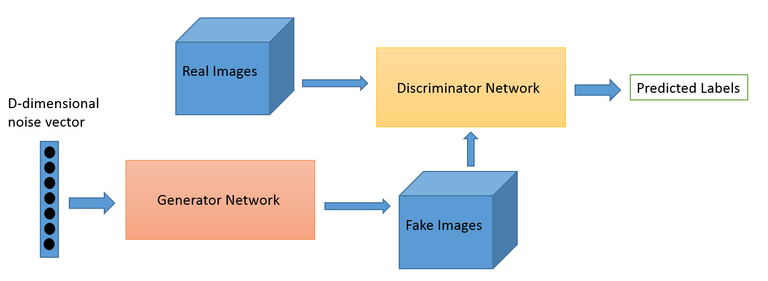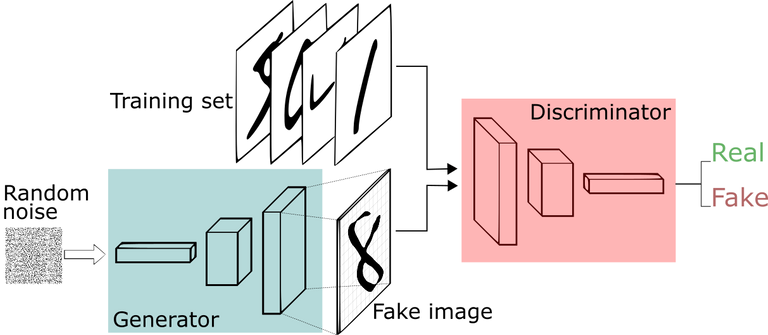
Hey Starlord here
The next deep neural network architecture that we need to discuss is a Generative Adversarial Networks, or GAN for short. The GAN is a combination of two learning neural networks: A Generative Network, and a Discriminator Network.
The Generative Network produces synthetic data, and the Discriminator Network tries detect if the data that it’s seeing s real or synthetic. These two networks are adversaries in the sense that they’re both competing to beat one another.
The Generative is trying to produce synthetic data indistinguishable from real data, and the Discriminator is trying to become progressively better at detecting fake data.
For example, imagine we want to create a neural network that generates synthetic images. First, we’d acquire a library of real-world images that we can use to provide real images for the image detector network.
Next, we’d create an Image Generator network to produce synthetic images. This would typically be a deconvolutional neural network, which we discussed earlier in this module.

[Courtesy: data science central
Then we’d create an Image Detector network to detect real images versus fake images. This would typically be a convolutional neural network, which we also discussed earlier in this module.

[Credit: O’Reilly]
At first, the generator would essentially create random noise as it learns hoe to create images that can fool the detector. In addition, the detector would only have 50/50 accuracy when predicting real versus fake images.
However, with each training iteration, the generators get progressively better ay generating real images, and the detector gets progressively better at detecting fake images.

[courtesy: skymind]
If you let these networks compete with one another for long enough, the generator begins producing fake images that approximately real images. Generative Adversarial Networks have gained quite a bit of popularity in recent years.
Some of their application include: image generation, image enhancement, text generation, speech synthesis, new drug discovery and more.
References for further reading
- Generative adversarial network
- A Beginner's Guide to Generative Adversarial Networks (GANs)
- Image Completion with Deep Learning in TensorFlow
- Generative Adversarial Networks (GANs): Engine and Applications
Thanks for reading and learning
Congratulations! This post has been upvoted from the communal account, @minnowsupport, by starlord6414 from the Minnow Support Project. It's a witness project run by aggroed, ausbitbank, teamsteem, someguy123, neoxian, followbtcnews, and netuoso. The goal is to help Steemit grow by supporting Minnows. Please find us at the Peace, Abundance, and Liberty Network (PALnet) Discord Channel. It's a completely public and open space to all members of the Steemit community who voluntarily choose to be there.
If you would like to delegate to the Minnow Support Project you can do so by clicking on the following links: 50SP, 100SP, 250SP, 500SP, 1000SP, 5000SP.
Be sure to leave at least 50SP undelegated on your account.